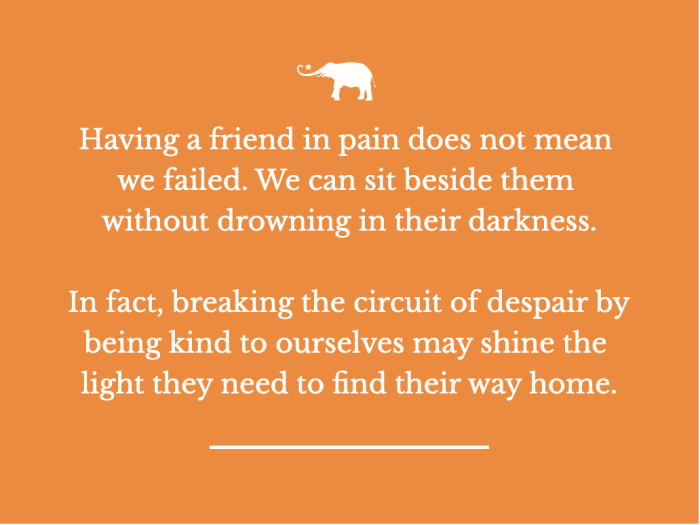In animals, just as in us, trauma leaves scars. I see it in myself when a certain word, colour or situation grabs my heart in its fist and yanks it out of my body. In a second, I go from having an enjoyable lunch with a friend to fighting every instinct in my screaming mind. The food turns to glue in my mouth. All I can think of is getting to a dark, safe corner where nobody can find me.
The animals we share our lives with have the exact same reaction, but their response is more honest than mine. While I gently put down my fork, take a sip of water and focus on calming my breath, an animal would do what I ache to: get the bleeding heck out of there and cower in the darkest place available until the memory of their fear has walked on.
In vet school, I studied the structure of the brain and dutifully noted down facts such as ‘memories are stored in the hippocampus’, but I never really understood what that meant, or why some memories bring on a wry smile and others will suffocate me. While learning about Ayurveda, the ancient Indian tradition of healing, I finally found an explanation that made sense. It holds that memories are imprinted in the white matter of our brains, literally imprinted. When we’re exposed to a similar situation later in life, the nerve cells are already bent into a shape that remembers the fear, the anger, the pain, and they make us react before we’re even fully aware of what we’re doing. We lash out. We rage. Or we dissociate. Anything to avoid reliving the trauma that’s scarred our minds.
Five months ago, a tiny black rescue kitten came to live with us. She bears a physical scar of early trauma: one of her back legs was so badly broken when she was barely four weeks old that it had to be amputated. The missing limb doesn’t hamper her in any way though. Of our two cats, she is always the one I need to rescue from the top of a bookcase or a ledge.
The scars that haunt her come to light when a stranger is in the house.
The moment she hears a strange voice, she dives for the safety of her blanket fort in my office, and if the visitors stay longer than a few minutes or — heaven forbid — move out of the entrance hall and into the rest of the house, she makes a desperate dash for our bedroom and crawls under the giant bed, where nobody can reach her.
Once, when we had to spend a night away and a friend stayed with the cats, she didn’t eat or drink for 24 hours.
I’ve used all the tricks in my vet bag to get her used to the fact that good people exist, but still, yesterday, she spent four hours under the bed.
Sitting on the bedroom floor, unable to comfort her, I feel like a failure.
Whenever I see someone I love spiralling into darkness and cannot pull them back out, I feel utterly useless.
Now, I’m rubbish at meditating, but I try. At the moment I just about manage a ten minute guided meditation most mornings. And this morning, the meditation by Jeff Warren was on Circuit Breakers: the power of recognising ourselves getting caught in a plunging loop and breaking the cycle. He spoke of simply taking a deep breath, placing your hand on your heart and saying: “it’s okay.”
And, d’you know, it really is.
It’s okay to feel deeply for the people we love (the furry and the skinclad ones). It makes us human. However, it’s important to realise that not being able to solve their problems through sheer force of our will is not failure. Having a friend in pain does not mean we failed. We can sit beside them without drowning in their darkness.
In fact, breaking the circuit of despair by being kind to ourselves may shine the light they need to find their way home.
This afternoon, after the electrician popped in, I sat on the floor in the bedroom again while a kitten shivered in darkness under the bed. I took a deep breath, placed a hand on my heart, and reminded myself that it was okay.
I was right there next to her. I just didn’t fall into her well in an effort to save her.
And a few minutes later, I felt her whiskers brushing my fingertips.












Read 0 comments and reply